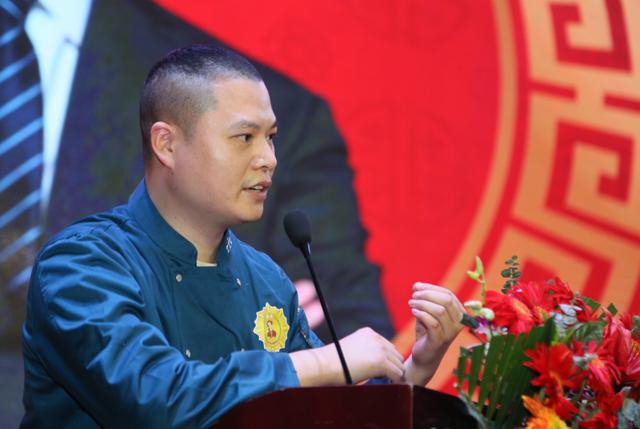next weekend可以表示这周吗(如果下下周千万不要翻译成)
我们知道,“第二天”可以就 next day,或following day,不过,说到“下下周”,很多人的第一反应有可能是“next next week”? 哈哈,这么说很Chinglish,正确的说法是“the week after the next”,或是one week later。
英语中有很多和时间有关的俚语,今天就和大家分享其中一些,以后见到就不会再一头雾水啦。

1.around the clock
“Around the clock”的意思是“全天候,昼夜不断的”,如果用来形容某个事物,说明它是24小时全天候营业的。
例句:
The hotel's service is great. There is always someone available to help you around the clock.
这家酒店的服务很棒,总有人可以24小时帮助你。
2.call it a day/night
这个表达的意思是“到此为止”,可以表示暂时停止,也可以用作俚语,表示某事已经完全结束了。
例句:
Right guys, you've worked really hard. I think it's time to call it a night, I'll see you all again tomorrow.
是的,伙计们,你们真的很努力。我觉得该结束了,我们明天再见。
Neither of us was happy in the relationship, so we decided to call it a day.
我们俩对这段感情关系都不满意,所以决定分手。
3.against the clock
这个相信很多小伙伴都不陌生,翻译成中文就是“争分夺秒”。
例句:
I worked day and night against the clock to get this done on time.
为了按时完成这项工作,我夜以继日争分夺秒地工作。
4.call time
“call time”的意思是“宣布暂停”。
例句:
I think we should call time on this project.
我认为我们应该停止这个项目。

5.days are numbered
Numbered有“时日无多和有限”的意思,所以“days are numbered”其实是表示某人生命已经时日无多。
例句:
The doctors say his days are numbered. They don't have much hope of him surviving this illness.
医生说他已经时日无多。他们对他在这场病中活下来不抱多大希望。
6.eleventh hour
“eleventh hour”可不是什么“十一点”的意思,它真正的意思是“最后时刻,刚好来得及”。
例句:
At the eleventh hour, he came first and won the race!
他在最后时刻得了第一名并且赢得了比赛。
这个表达出自圣经的《马太福音》。古时候,有个富人想雇几个人到他的园子里去干活,他从早上五点就开始雇人,雇到最后一个人时已经是夜里很晚了。干完活后付工钱时,结果大早上来的和夜里来的都是一样的工资,于是一大早就开始干活的人极为不满,既然只要不超12点来做工的工钱都一样多,那还不如在最后时刻来呢。因此“at the eleventh hour”就成为了“在最后时刻,刚好来得及”的意思。
那么,可能有小伙伴会问11点怎么说,正确表达是“Eleven o'clock”。
7.crunch time
“crunch time”的意思是“关键时刻、关键时间”,在“crunch time”做出的决定都是很重大的决定。
例句:
He knew it was crunch time.
他知道这是关键时刻。

8.carry the day
打游戏的时候我们经常会遇到carry这个词,我carry你啊,带你上分什么的。但是“carry the day”是什么意思呢?它的意思是“战胜,获胜”,形容经过了很长时间的对决最终获得胜利。
例句:
Experts who know how to communicate clearly and powerfully carry the day.
只有知道如何清晰有力表达的专家才能获胜。
9.big time
“big time”真正的意思是“非常,很多”,等于“very much”或者“a lot”。
例句:
You owe me big time because I helped you with your school project.
你欠我很多,因为我帮你完成了学校的项目。
10.hit the big time
“hit the big time”的意思是“大获成功”。
例句:
After John hit the big time, he became very rich and forgot about all his old friends.
John大获成功之后,他变得非常富有,把自己所有的老朋友都忘了。
11.five o'clock shadow
千万不要把“five o'clock shadow”翻译成“5点的影子”,那可闹大笑话了!它真正的意思是男生一两天不刮胡子之后脸上出现的毛发。
例句:
You can't go for your interview with a five o'clock shadow! Go and have a shave!
你不能带着胡子去面试!去刮胡子!
12.a whale of a time
如果玩得很开心,就可以说“a whale of a time”。
例句:
The theme park was so much fun. I had a whale of a time!
主题公园非常有趣。我玩得很开心!
13.year in, year out
如果我们想说“年复一年”,就可以用“year in, year out”这个表达,即连续多年每年都会发生的事情。
例句:
Our family holidays are so boring now. Year in, year out we go to the same holiday resort and stay in the same old hotel!
我们的家庭度假很无聊。年复一年都去同样的度假地待在同样的老酒店里!
14.a day late and a dollar short
“晚了一天,少了一美元”?其实它的意思是“差一点点,差一步”,即某件事发生得有点太晚,不足以接受。
例句:
They offered me a contract after I'd already accepted another job offer – a day late and a dollar short!
在我接受了另一份工作之后,他们给了我一份合同——就差一点点!
15.once in a blue moon
蓝色的月亮?其实它的意思是“千载难逢;极为罕见”。
例句:
My grandparents live in Canada. I only get to see them once in a blue moon, because it's very expensive to fly there.
我的祖父母住在加拿大。我难得看他们一次,因为飞到那里太贵了。
16.two-time
“two-time”不是两次!千万不要弄错了,它真正的意思是“背叛自己的另一半,对爱情不忠”。
例句:
When she found out that he had been two-timing her, she left him instantly.
当她发现他背叛她时,她立即离开了他。
,免责声明:本文仅代表文章作者的个人观点,与本站无关。其原创性、真实性以及文中陈述文字和内容未经本站证实,对本文以及其中全部或者部分内容文字的真实性、完整性和原创性本站不作任何保证或承诺,请读者仅作参考,并自行核实相关内容。文章投诉邮箱:anhduc.ph@yahoo.com






